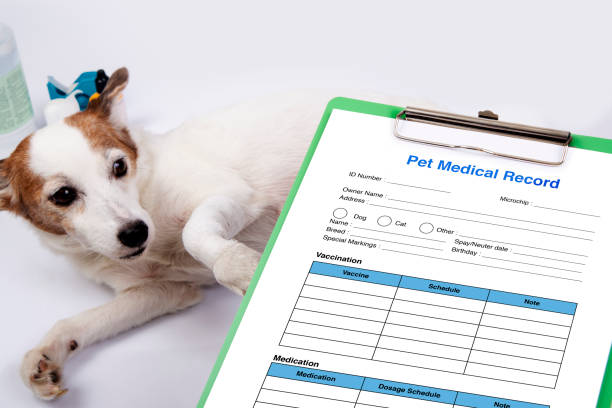Ensuring the well-being of your pets involves not only providing them with love and care but also protecting them with appropriate insurance coverage. Pet insurance can offer peace of mind and financial support in the event of unexpected health issues or accidents. Here’s a guide to the best pet coverage options to consider for your furry family members.
1. Accident-Only Coverage
Overview: Accident-only coverage is designed to protect your pet against injuries resulting from accidents, such as fractures, poisonings, or accidents.
Key Benefits:
- Cost-Effective: Generally more affordable than comprehensive plans.
- Focus on Emergencies: Covers treatments related to accidents and injuries.
Considerations:
- Limited Scope: Does not cover illnesses or routine care.
- Best For: Pets who are generally healthy but at risk for accidents.
2. Basic Illness and Accident Coverage
Overview: Basic illness and accident coverage provides protection against both accidents and common illnesses, such as infections or minor health conditions.
Key Benefits:
- Comprehensive: Covers a broad range of health issues, including both accidents and illnesses.
- Affordable: Typically offers a balance between coverage and cost.
Considerations:
- Exclusions: May have limitations on coverage for pre-existing conditions or certain treatments.
- Best For: Pet owners seeking essential protection without extensive coverage.
3. Comprehensive Coverage
Overview: Comprehensive pet insurance offers extensive coverage, including accidents, illnesses, hereditary conditions, and more. It often includes coverage for diagnostic tests, surgeries, and medications.
Key Benefits:
- Wide Range of Coverage: Includes most health issues, from routine care to emergencies.
- Flexibility: Often allows you to choose your vet and includes coverage for specialist treatments.
Considerations:
- Higher Premiums: Generally more expensive due to the broad coverage.
- Best For: Pet owners wanting thorough protection for a variety of potential health issues.
4. Wellness Plans
Overview: Wellness plans focus on preventive care and routine treatments, such as vaccinations, annual checkups, and dental cleanings.
Key Benefits:
- Preventive Care: Helps manage the cost of routine and preventive health care.
- Customizable: Often available as add-ons to accident and illness policies.
Considerations:
- Limited Coverage: Does not cover accidents or illnesses; primarily for routine care.
- Best For: Pets requiring regular preventive care and routine services.
5. Accident and Illness Coverage with Optional Add-Ons
Overview: Some insurance providers offer basic accident and illness coverage with optional add-ons for additional protection, such as coverage for alternative therapies or emergency boarding.
Key Benefits:
- Customizable: Allows you to tailor your coverage to your pet’s specific needs.
- Comprehensive Options: You can add coverage for areas not included in the standard plan.
Considerations:
- Additional Costs: Add-ons will increase the overall premium.
- Best For: Pet owners seeking customized coverage options.
6. Lifetime or Per-Year Coverage
Overview: Pet insurance policies may offer lifetime or per-year coverage options. Lifetime coverage provides ongoing protection throughout your pet’s life, while per-year coverage offers protection within a specific policy year.
Key Benefits:
- Lifetime Coverage: Continuous protection for chronic conditions throughout your pet’s life.
- Per-Year Coverage: May have lower premiums with coverage that resets annually.
Considerations:
- Lifetime Coverage Costs: May have higher premiums but offers long-term protection.
- Best For: Pet owners looking for either ongoing protection or more affordable, annual options.
7. High Coverage Limits
Overview: Some pet insurance plans offer high coverage limits for treatments and procedures, ensuring that significant medical costs are covered.
Key Benefits:
- Extended Coverage: Higher limits for expensive treatments and surgeries.
- Peace of Mind: Reduced financial stress for major health issues.
Considerations:
- Higher Premiums: Plans with higher coverage limits usually come with increased premiums.
- Best For: Pet owners who want to ensure comprehensive financial protection for serious health issues.
8. Flexible Deductibles and Reimbursement Levels
Overview: Many pet insurance plans offer flexible options for deductibles and reimbursement levels, allowing you to choose a plan that fits your budget and needs.
Key Benefits:
- Customization: Adjust deductibles and reimbursement percentages to balance coverage and cost.
- Affordable Options: Find a plan that aligns with your financial situation.
Considerations:
- Variation in Costs: Different choices can significantly impact your monthly premiums and out-of-pocket costs.
- Best For: Pet owners who want to customize their plan to suit their financial situation and coverage needs.
Conclusion
Choosing the right pet insurance coverage involves understanding your pet’s health needs and your budget. From accident-only coverage to comprehensive plans with high coverage limits, there are various options to protect your furry family members. Assess your pet’s specific health needs, consider your financial situation, and choose a plan that offers the right balance of coverage and affordability. By investing in the best pet coverage options, you ensure that your pet receives the care they need, while providing yourself with peace of mind.



